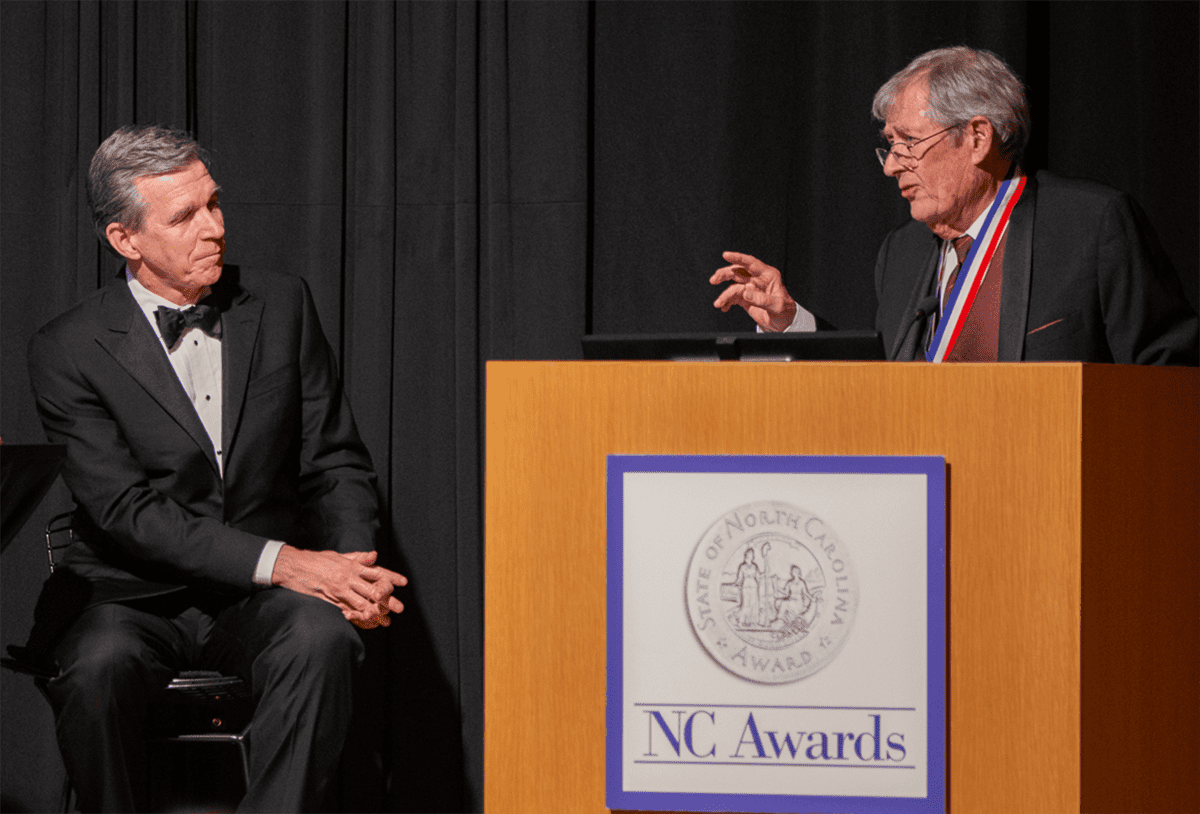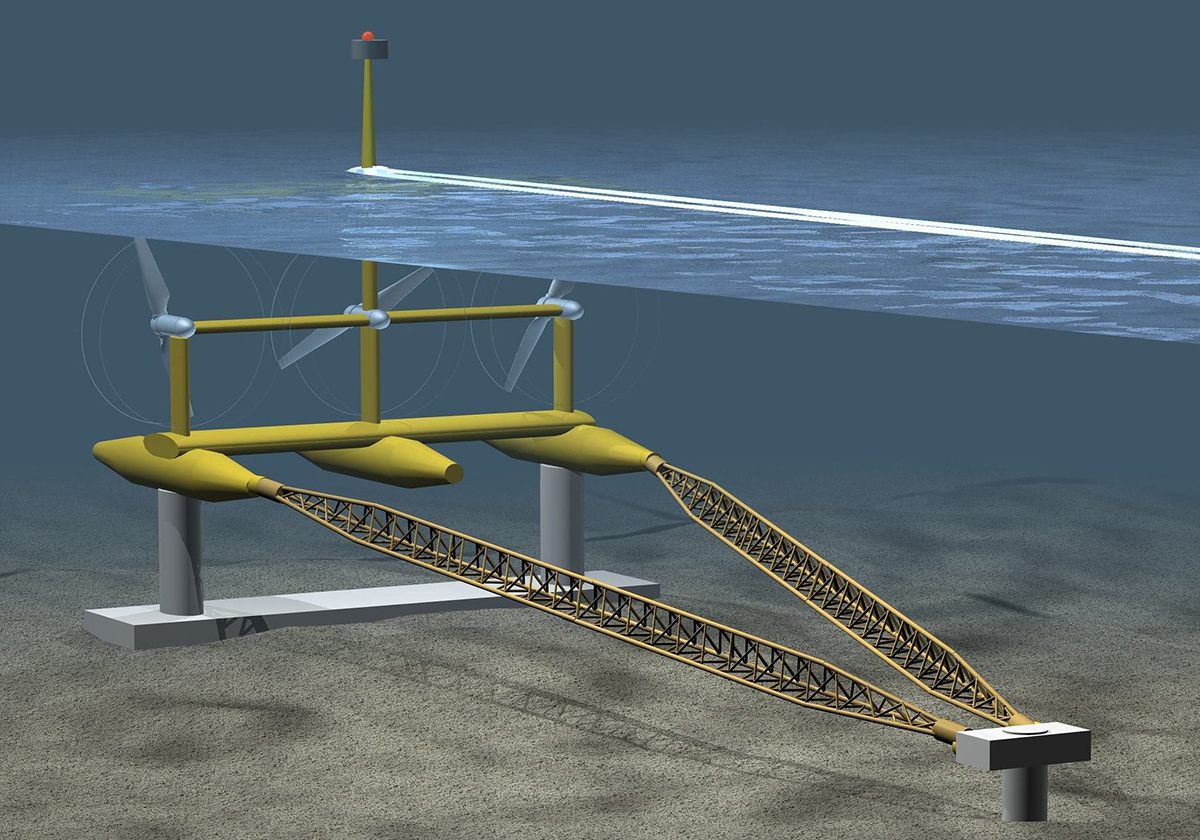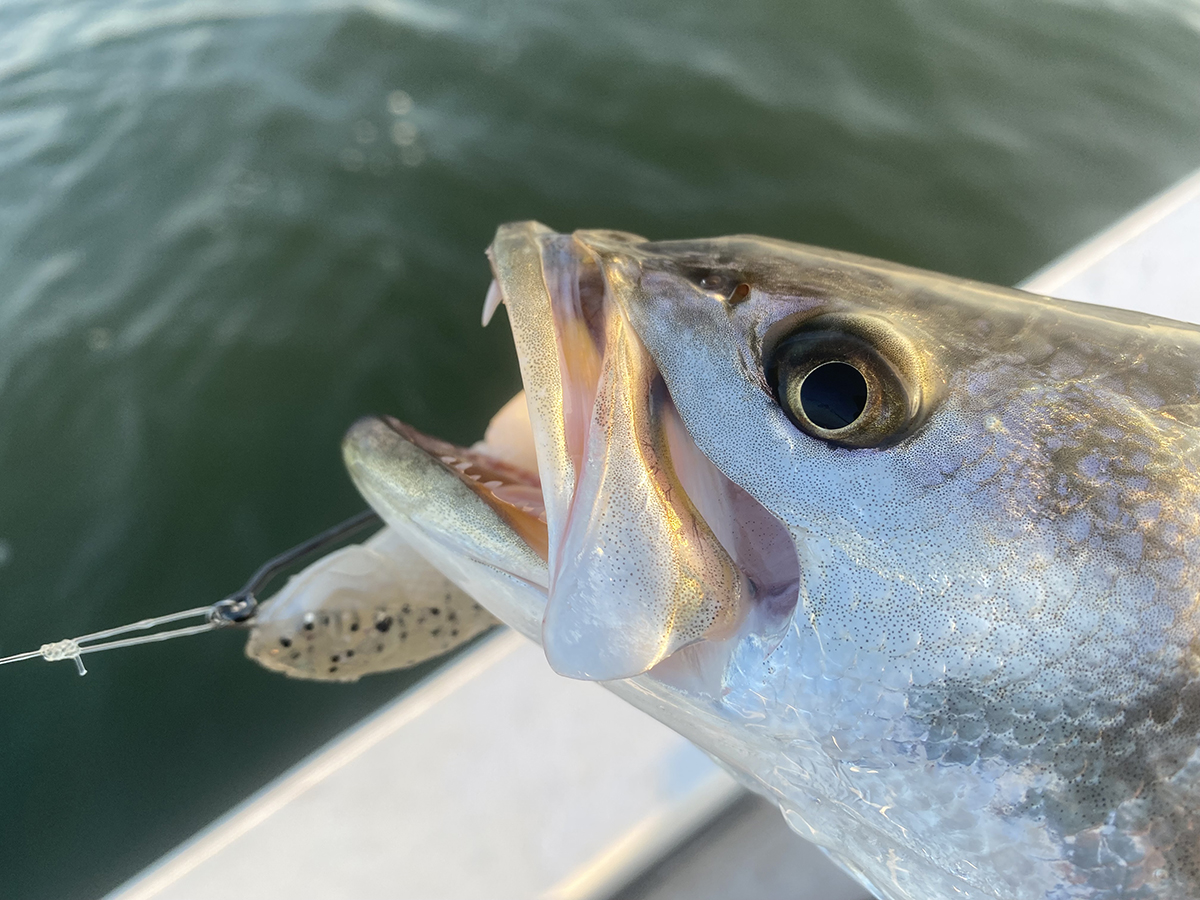
Marine geologist Dr. Stan Riggs was recently among six chosen to receive the North Carolina Award, the state’s highest civilian honor. Gov. Roy Cooper presented the awards Nov. 15 during a ceremony at the North Carolina Museum of Art. Dr. Riggs told Coastal Review that the award truly recognizes all the groups, scientists and others who have worked over the last half century to understand, protect and manage the state’s dynamic natural coastal resources. He has provided his award acceptance speech, which follows, as a guest commentary.
— The editor.
Supporter Spotlight
North Carolina’s Land of Water represents our past, present, and future. It is a world-class mixing basin and transition zone where upland river valleys and coastal plain peninsulas meet the ocean. It is a high-energy intersection of land, water, and air where sunny day calms quickly shift to high-energy stages of dynamic change.
In our unending rush to conquer the ocean’s barrier islands we tend to overlook the inner coastal world of estuaries, wetlands, and lowlands that require one to slow down and become acquainted with the more introspective and contemplative components of our natural coastal system. This land of water with its vast natural resources and extreme dynamics has dictated the cultural history of our great state of NC; this is the unwritten chapter in most of our history books!

There will always be a shoreline and coastal system wherever an ocean intersects a land mass; it just won’t be in the same place as they move in response to changing climatic and geologic conditions! Unfortunately, historical economic development practices in our coastal system have largely ignored the dynamics of natural change. Centuries of ditching, draining, and clearing wetlands and the more recent development of urban cities on mobile barrier sand piles have created unintended consequences resulting in massive economic losses by ongoing climate change. Within this watery world there are certain limits to growth and development where water is both a critical resource and a harsh dictator!
Related: Stan Riggs to receive 2022 North Carolina Award
The earth’s dynamics have challenged the engineering prowess of many great minds over the past four centuries. Now in the 21st century with rising sea level and exploding coastal populations, North Carolina finds itself in the throes of a perfect conflict — an escalating battle between natural storm dynamics that drive coastal change and the economic drive to stabilize and develop the land and water resources. This is an untenable path that is severely wounding the golden goose of profits and morphing it into the gray goose of silence. When living within this dynamic intersection of land, water, and air, where change is a critical constant, society must adopt a more humble approach and learn to live with the changing system dynamics!
Supporter Spotlight
I have dedicated my entire 58-year career to understanding the complexities, processes, and evolutionary history of our Earth’s resource systems and translating that knowledge to the citizens and leadership of our great State of the Longleaf Pine. I did not earn this award alone; I always worked with great teams of students, colleagues, and public who care about living gently with the dynamics of change in our rivers, estuaries, barrier islands, and vast coastal ocean. This coastal world of land and sea is our only home; its natural resources and dynamics drove our cultural history and will dictate our future.
Finally, I am totally honored and humbled by this lifetime award for supporting an incredibly stimulating and educational career’s worth of work. Thanks to my precious and always supportive family, East Carolina University for providing exciting opportunities and challenges, the many amazing cohorts and team members, the support and partnerships with numerous state and federal agencies and nonprofit organizations, and to our dedicated state leaders and educators.
Thank you for this honor.
To stimulate discussion and debate, Coastal Review welcomes differing viewpoints on topical coastal issues. See our guidelines for submitting guest columns. Opinions expressed by the authors are not necessarily those of Coastal Review or the North Carolina Coastal Federation.







